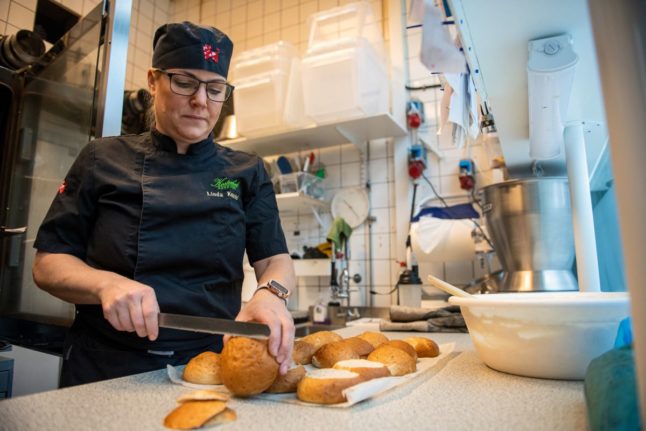The new show, titled Invandrare for Svenskar, or “immigrants for Swedes”, is a version of Call my Bluff, in which a panel of ten immigrants from across Sweden, most minor celebrities, seek to fool three ethnic Swedes — jokingly referred to as “this evening’s minorities”, about their various cultures.
The show is hosted by the comedian Ahmed Berhan, who told Swedish state broadcaster SR that he wanted viewers to meet immigrants in a new setting.
“The fact that I could do a quiz show in this style is very fun, and I think it’s definitely time that you can see people from different backgrounds in a different situation from where you normally see them in, like in debates, or Uppdrag Granskning programmes about problems in outsider areas.”
The show, now on its third episode, brilliantly shows up how little the average Swede knows about immigrant cultures, with contestants easily fooled, for instance, into thinking that fufu, the West African staple food, is a word for the female sexual organ.
Other questions raised are whether Arabs say Eid Mubarak when someone sneezes, whether you should give someone the thumbs up in Iran and Afghanistan.
“We had so much fun recording it, that we had gut feeling it would work,” Berhan told SR. “To learn about one another from one another is something that really brings people together.”
The show has left critics in Sweden sharply divided, with some bemused, some finding it forced and cringeworthy.
“It’s irreverent, it’s heartfelt, and it’s better entertainment than anything else on TV right now,” wrote Expressen’s critic Viktor Malm, arguing that it was better even than classic and much-loved Swedish quiz show På spåret.
Karolina Fjellborg, at Aftonbladet, on the other hand, named it as a “potential flop”, calling it a “forced and painfully shallow”.
SvD’s television critic is between stools, saying the programme was less of a disaster than he had feared.
“It is sometimes actually quite entertaining despite the twisted premise with ‘majority Swedes’ having to guess whether various claims about other cultures are true or not,” he wrote.



 Please whitelist us to continue reading.
Please whitelist us to continue reading.
Member comments